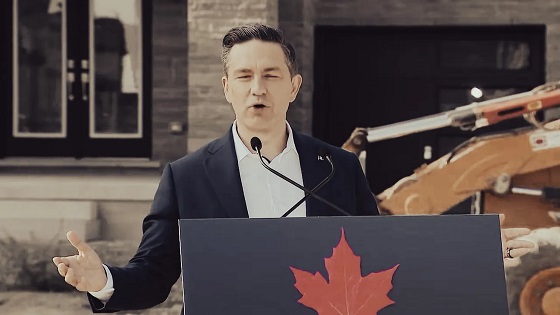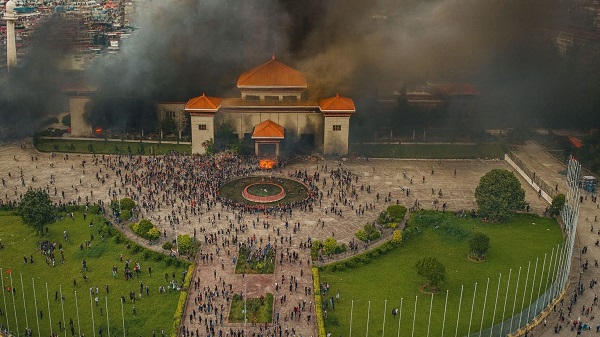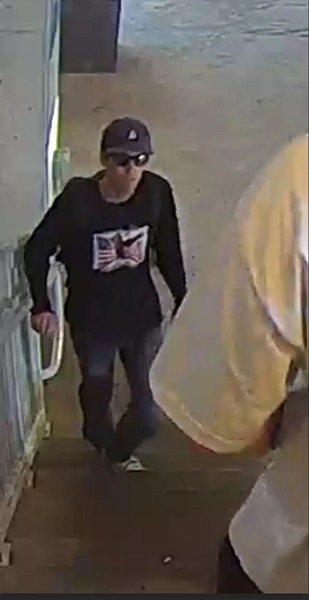COVID-19
Ontario doctor punished for questioning COVID response plans appeal to Supreme Court
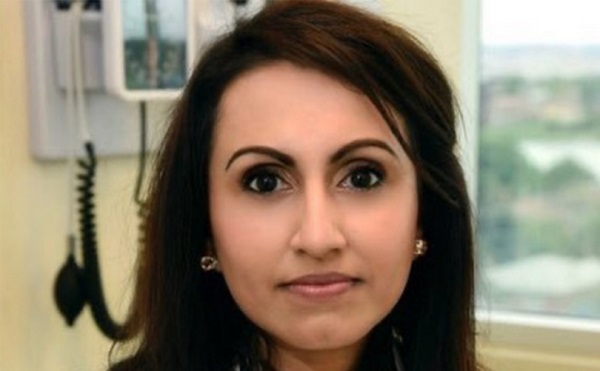
Ontario pediatrician Dr. Kulvinder Kaur Gill
From LifeSiteNews
Elon Musk has said he would help Dr. Kulvinder Kaur Gill financially in her fight against the College of Physicians and Surgeons of Ontario.
Ontario pediatrician Dr. Kulvinder Kaur Gill, who is embroiled in a legal battle with a medical regulator for her anti-COVID jab and mandate views on social media, is looking to take her case to Canada’s Supreme Court with financial help from Elon Musk and a leading freedom-fighting lawyer.
Libertas Law, which is representing Gill, said in a press release sent to LifeSiteNews on Monday the canceled doctor “filed an application for leave to appeal to the Supreme Court of Canada” her case against the College of Physicians and Surgeons of Ontario (CPSO).
“The growing overreach of regulators into monitoring the speech of professionals on social media has become a matter of national concern to the public, which loses the benefit of hearing a variety of opinions when professionals’ speech is chilled out of fear of punishment,” Libertas Law attorney Lisa Bildy said. “We hope that the Supreme Court of Canada will use Dr. Gill’s case to restore the historic role of the courts as guardians of the constitution.”
The application follows Gill’s unsuccessful judicial review of the “cautions-in-person ordered against her in 2021” by a CPSO committee concerning her Twitter comments in August 2020 that criticized multiple levels of governments COVID mandates and policies.
The orders against Gill were made despite her “providing the College with ample evidence in 2020 to support her position against catastrophic lockdowns,” Libertas Law noted.
Musk, the billionaire Tesla and X owner, pledged in March to back Gill financially.
The application to Canada’s highest court comes after her application for leave to appeal to the Ontario Court of Appeal (ONCA) “was denied” on October 3.
“The infringement of Dr. Gill’s freedom of expression and conscience, guaranteed under the Charter of Rights and Freedoms, was barely mentioned by the committee when it issued the orders for cautions in-person (which Dr. Gill has not yet received),” Libertas stated in its press release.
Libertas noted that a brief comment about the committee having “no interest in shutting down free speech” was made “before proceeding to do exactly that.”
According to Libertas, the CPSO had placed on its website in 2020 a warning to doctors to provide “an opinion that does not align with information coming from public health or government.”
“Yet the Divisional Court declined to quash the orders, finding that the committee was sufficiently alert to the Charter infringement of Dr. Gill’s speech, such that its decisions were within the range of reasonable outcomes,” the legal firm said.
Last May, LifeSiteNews reported that Gill had vowed to fight with appeals with the help of her Musk-backed legal team after she lost a court battle.
One of Gill’s “controversial” posts she made in 2020 read, “If you have not yet figured out that we don’t need a vaccine, you are not paying attention. #FactsNotFear.”
The Divisional Court decision against Gill dated May 7 concluded, “When the College chose to draw the line at those tweets which it found contained misinformation, it did so in a way which reasonably balanced Dr. Gill’s free speech rights with her professional responsibilities.”
“In other words, its response was proportionate,” the ruling stated.
In Monday’s press release, Libertas Law noted that due to an unrelated recent court ruling relating to Charter Rights, Gill will argue the same reasonings to fight her censorship in her appeal to the Supreme Court.
Canceled doc’s legal battles against medical regulator ongoing for months
Gill’s court challenge against the CPSO began earlier this year, with Bildy writing at the time that the “decisions were neither reasonable nor justified and they failed to engage with the central issues for which Dr. Gill was being cautioned.”
She argued that Gill had a “reasonable scientific basis” for her posts, noting that the previous decision made against Gill targeted her for opposing the mainstream COVID narrative.
Gill is a specialist practicing in the Toronto area and has extensive experience and training in “pediatrics, and allergy and clinical immunology, including scientific research in microbiology, virology and vaccinology.”
Last September, disciplinary proceedings against her were withdrawn by the CPSO. However, Gill was ordered last year to pay $1 million in legal costs after her libel suit was struck down.
The CPSO began disciplinary investigations against Gill in August 2020.
COVID vaccine mandates, which came from provincial governments with the support of the federal government, split Canadian society. The mRNA shots have been linked to a multitude of negative and often severe side effects in children.
In an interview with LifeSiteNews at its annual general meeting in July 2023 near Toronto, canceled doctors Mary O’Connor, Mark Trozzi, Chris Shoemaker, and Byram Bridle were asked to state their messages to the medical community regarding how they have had to fight censure because they have opinions contrary to the COVID mainstream narrative.
COVID-19
Why FDA Was Right To Say No To COVID-19 Vaccines For Healthy Kids
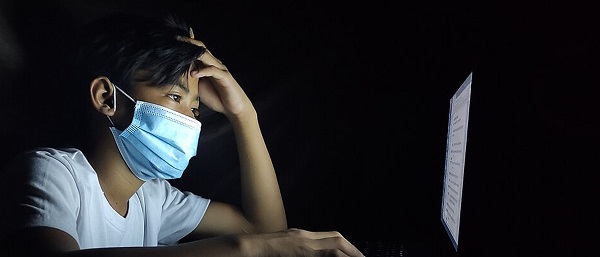

From the Daily Caller News Foundation
The FDA’s decision not to authorize COVID-19 vaccines for healthy children has drawn criticism. Some argue: If parents want the shot, why not let them get it for their kids? That argument misunderstands what FDA authorization means — and why it exists.
The FDA often approves drugs that carry risks or have imperfect evidence of effectiveness. This is a tradeoff we sometimes accept for people who are ill: when someone is already sick, the alternative is untreated disease. Vaccines are different. They are given to millions of healthy children. This requires a higher standard, not just evidence for safety and immune response, but clear, durable clinical effectiveness. Approval for optional use isn’t neutral; once the FDA authorizes a vaccine, it carries the full weight of institutional endorsement.
Measles provides an example for how the FDA approaches vaccine approvals. Before the measles vaccine was introduced in 1963, the U.S. saw 3 to 4 million infections, ~48,000 hospitalizations, ~1,000 cases of encephalitis, and 400-500 deaths each year. Infants bore the brunt of the most severe outcomes.
Dear Readers:
As a nonprofit, we are dependent on the generosity of our readers.
Please consider making a small donation of any amount here.
Thank you!
That created a natural instinct: why not vaccinate the youngest and most vulnerable? The initial measles rollout was to 9-month-olds, but within two years that timing was changed to children who were at least 1 year of age. This was not because younger babies were not at risk or that the vaccine was riskier for them, but because it just didn’t work well enough to justify a universal campaign.
The knowledge of the particular risk younger infants face has led to continued research on the effectiveness of measles vaccination in that group. A 2023 trial of the combined measles/mumps/rubella (MMR) vaccine in infants aged 5-7 months, and subsequent safety and immune studies in 2024 and 2025, produced consistent results—safety and the ability to generate antibodies were demonstrated, but a durable response and protection against hospitalization were not.
That is why the FDA does not approve MMR for routine use in healthy children younger than 12 months of age. It is also precisely why getting back to herd immunity for measles is so essential: the youngest infants can only be protected if the rest of us are immunized.
What’s the evidence for COVID-19 vaccination in infants and children? It generates robust antibodies, often higher than in adults. But clinical benefits are modest, short-lived, and inconsistent. It is nowhere near the level of proof U.S. regulators require before making a vaccine universally available to healthy kids.
Some argue that even if benefits are modest, parents and pediatricians should be free to choose. But FDA authorization is not about personal preference; it is a stamp of approval for more than 70 million healthy children. Statistical safety is not enough. At that scale, even rare risks mean real harm to real children. COVID-19 vaccines were originally authorized in the hope that immune responses would translate into population-level benefits. For healthy children, the initial optimism sparked by early encouraging signals has steadily given way to three years of disappointing clinical results.
The lessons from measles are clear: safe but minimally effective isn’t enough. We don’t authorize MMR for 5-month-olds, even to parents who might want their children to get it. COVID-19 vaccines for healthy children should be judged similarly. This is not because there is a lack of any benefit, but because it doesn’t rise to the level we use for other vaccines. Only if and when proof of clinical effectiveness becomes available should authorization be reconsidered. At this time, the FDA is right to say no.
Monique Yohanan, MD, MPH, is a senior fellow at Independent Women, a physician executive and healthcare innovation leader, and Chief Medical Officer at Adia Health.
COVID-19
The Persecution of Canada’s “Other” Freedom Convoy Truckers
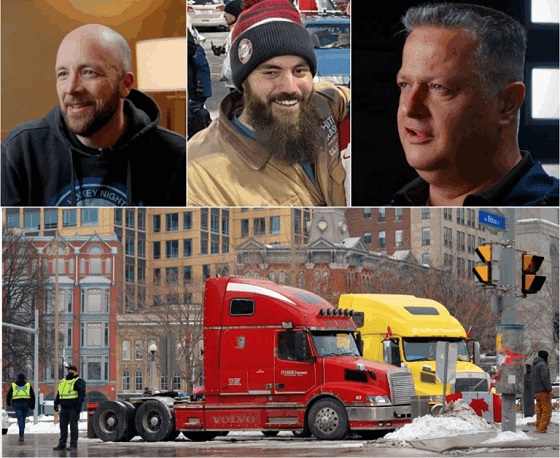
While thousands of serious criminal cases across Canada are dropped merely due to delays, many Convoy-related prosecutions on trivial charges continue more than three-and-a-half years later. The cases of Freedom Convoy truckers (left to right) Bern Bueckert, Clayton McAllister and Csaba Vizi (whose Volvo is shown at bottom) are still not fully resolved. (Sources of photos: (top left and right) screenshots from documentary Unacceptable?; (top middle) ThankYouTruckers.Substack; (bottom) Donna Laframboise)
On September 8, three and a half years after the 2022 Freedom Convoy departed Ottawa, and five long, stressful months after his trial actually ended, Robert Dinel walked out of court a free man.
Dinel, a Quebec heavy equipment operator who’d behaved entirely peacefully during the protest over Covid restrictions, had been charged with mischief and obstruction of police. Court proceedings were repeatedly delayed — four times alone just this year — until judge Matthew Webber of the Ontario Court of Justice finally stayed the charges on the grounds that Dinel’s Charter rights to a timely trial had been violated.
For Dinel, it was a relief. For Canadians concerned about freedom and justice, his legal ordeal was yet another example of a system gone off the rails.
Most Canadians are aware of the trials of convoy leaders Tamara Lich and Chris Barber, which ended in conviction; they are to be sentenced in October. Few may realize that many more protestors were charged, most for the relatively innocuous infraction of mischief, and have had their cases drag on and on through the courts for more than three years.
The record of Canada’s legal system clearly shows that mischief charges are routinely withdrawn before scarce and expensive court time is expended on relative trivialities. But when it comes to the truckers, the Crown attorneys at the Ottawa courthouse – employees of the Government of Ontario, not the federal government – appear to have lost all perspective. They are on a mission. The sheer intensity of the prosecution of Convoy members looks less like the fair administration of justice than revenge upon people who dared protest the arbitrary and oppressive measures of the Covid years.
The initial police crackdown itself was a mess. Those arrested were passed from police officer to police officer. Officials writing up the paperwork had no direct knowledge of what had actually transpired; extra charges appear to have been tacked on willy nilly. In Dinel’s case, the prosecution doesn’t even know the identity of the tactical officer who pointed a gun at his head and hauled him out of his vehicle on February 18, 2022.
In a police processing trailer four hours after his arrest, Dinel received a medical assessment from a paramedic. Seated and hand-cuffed throughout, the five-foot-three Dinel calmly and repeatedly told police he was in no fit state to be making decisions and that he wanted to speak to a lawyer. “I want to know what I’m signing,” he insisted. But the police officers, who outnumbered him ten-to-one, kept pushing him to sign an undertaking that he wouldn’t return to the protest area. The fact he never got his phone call – that he was denied his Charter right “to retain and instruct [legal] counsel without delay” – should have stopped this case in its tracks. The Crown chose to pursue it, anyway.
A week after Dinel’s mother died in July 2023, he suffered the first of four strokes. In December 2023, one occurred in the courtroom. “My whole face just seized up,” he recalls. “I had another stroke. My whole face drooped, then the judge freaked right out.” An ambulance was summoned and his trial was adjourned. “I hate court,” says Dinel. “It’s hard, you know. It’s stressful, it’s exhausting.” Rather than staying the charges on compassionate grounds, the prosecution continued, with Dinel accompanied by a service dog.
Nova Scotia trucker Guy Meister spent hours in the same paddy wagon as Dinel the day they were arrested. After travelling from his Nova Scotia home to Ottawa for court appearances more than a dozen times – at considerable expense – in May of this year Meister was found guilty of mischief, but not of obstructing police. In late July, he was sentenced to 20 hours of community service, six months’ probation, and ordered to pay a $100 victim surcharge.
The trial for Windsor, Ontario trucker Csaba Vizi began just this month, the same day Robert Dinel’s charges were stayed. Video broadcast around the world in February 2022 shows him being assaulted by multiple police officers after he’d exited his truck and knelt down in the snow with his hands behind his head. None of those officers were themselves charged following this violence. None were forced to raise tens of thousands in lawyers’ fees, as Vizi has. Even protesters who have endured the stress of a trial and been acquitted have still not always walked free and clear, because the Crown has often insisted on filing appeals. As a result, defence lawyers routinely advise Freedom Convoy protesters that their legal nightmare isn’t actually over until an additional 30 days have come and gone. In one instance, the Crown waited until the last afternoon of the last permissible day to file its appeal.
These are just a few examples of what’s been going on in Canada’s justice system, one already beset by long delays for cases involving far more serious crimes. Credible news reports suggest that the majority of criminal cases in Ontario aren’t even making it to trial, with sexual assault
charges dropped because of delays. Yet the Convoy prosecutions continue.
Many people insist Covid is over, that we should all move on. But the legal persecution of the truckers who bravely protested government overreach in the bitter winter of early 2022 is far from over.
Donna Laframboise is an independent journalist and photographer. A former vice-president of the Canadian Civil Liberties Association, she is the author of Thank You, Truckers! Canada’s Heroes & Those Who Helped Them.
The original, full-length version of this article was recently published in C2C Journal.
-
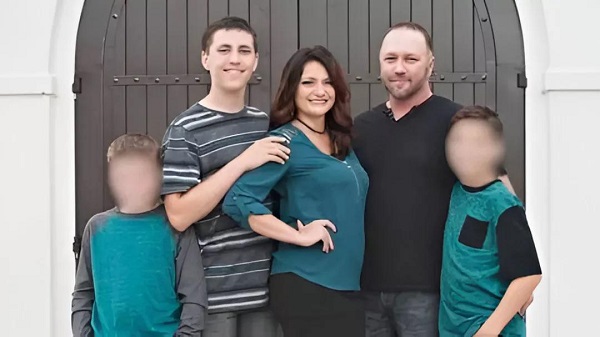
 Crime2 days ago
Crime2 days agoFormer NYPD Inspector Shares What Family Of Alleged Charlie Kirk Assassin Feared Before Turning Him In
-
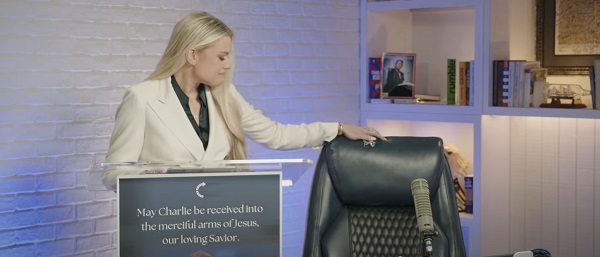
 Daily Caller2 days ago
Daily Caller2 days ago‘You Have No Idea What You Have Unleashed’: Erika Kirk Addresses Supporters For First Time Since Kirk’s Assassination
-

 espionage1 day ago
espionage1 day agoInside Xi’s Fifth Column: How Beijing Uses Gangsters to Wage Political Warfare in Taiwan — and the West
-

 Education1 day ago
Education1 day agoOur kids are struggling to read. Phonics is the easy fix
-

 Censorship Industrial Complex1 day ago
Censorship Industrial Complex1 day agoDecision expected soon in case that challenges Alberta’s “safe spaces” law
-

 International1 day ago
International1 day agoBrazil sentences former President Bolsonaro to 27 years behind bars
-

 Energy19 hours ago
Energy19 hours agoThe IEA’s Peak Oil Fever Dream Looks To Be In Full Collapse
-

 Crime19 hours ago
Crime19 hours agoTransgender Roomate of Alleged Charlie Kirk Assassin Cooperating with Investigation

